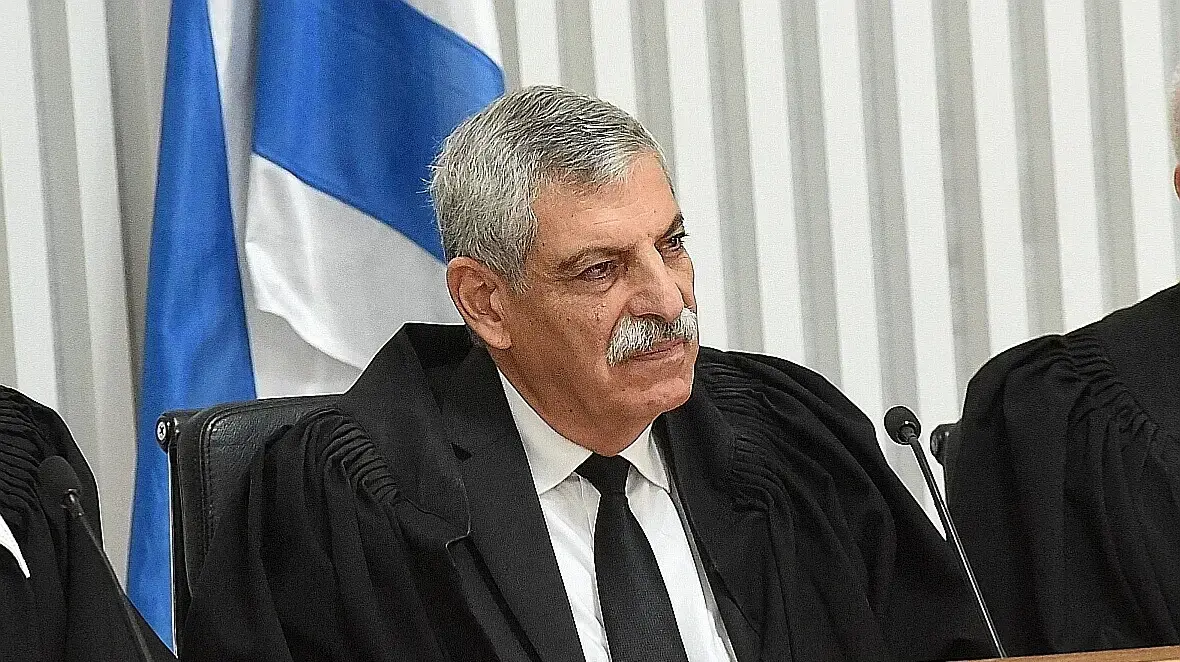Dolores Delgado during the act of transferring the portfolio of Minister of Justice to her successor in office, Juan Carlos Campo, in January 2020.
The mandate at the head of the Attorney General's Office of Dolores Delgado was one of the most convulsive that are remembered in that institution, but the post-mandate is generating almost as much noise inside and outside the Public Ministry. The appointment of Delgado as future prosecutor of the Human Rights and Democratic Memory Chamber, a newly created position, is the latest chapter in a list of controversial appointments that have marked the most recent trajectory of this prosecutor with more than 33 years of practice, always in the spotlight of the most conservative sector of the career, that does not forgive her step, as Minister of Justice, by the first Government of Pedro Sánchez.
That appointment to be part of the Council of Ministers—which was received with some surprise, but without too many qualms on the part of the judicial and prosecutorial careers—is at the origin of the reproaches that have later rained down on Delgado, but his stage at the head of Justice (between June 2018 and January 2020) was notably less tense than the one that awaited him in the Attorney General's Office. Delgado was appointed by the Executive to lead the public ministry only a few days after leaving Justice, a decision that immediately provoked criticism from the opposition. There was only one precedent of a minister who went directly to the Attorney General's Office, that of Javier Moscoso in 1986, under the Government of Felipe González.
Delgado had come to the government as an independent – judges and prosecutors are prohibited by law from joining parties – but in the year and a half that he was in the Ministry of Justice he had consolidated his more political facet with confrontations with the opposition, campaigning in favor of the PSOE and being elected on the socialist lists for Congress. From that position, his direct jump to the State Attorney General's Office marked his mandate from the beginning. The most conservative sectors of the prosecutorial career received her as an intruder of the Government at the top of the Public Ministry and exercised internal opposition to question practically all her decisions.
The episodes of greatest tension came from the policy of appointments, for which his detractors accused Delgado of favoring in an "arbitrary" way many of those who were his colleagues in the Progressive Union of Prosecutors (UPF). After numerous clashes with the Association of Prosecutors (AF), the majority and conservative tendency, Delgado resigned in July 2022 citing health problems. The departure of Delgado and the appointment of his replacement, Álvaro García Ortiz, contributed to somewhat reduce the tension in the race, although the conservative association also received with strong reluctance the new boss, who had been Delgado's right hand in the public ministry and whom they pointed out as the intellectual author of many of his decisions.
The truce that seemed to be able to be decreed after the departure of Delgado was short-lived, and the conservative association of prosecutors has placed García Ortiz in the target of all its criticisms as they had done before with his predecessor. And the chapters of greatest controversy have come, precisely, from the hand of discretionary appointments in favor of the former attorney general. The first, last September, when Delgado, who after leaving the head of the Public Ministry had to join the Prosecutor's Office of the National Court, was promoted to prosecutor of room, the highest category of the career.
That appointment, proposed by García Ortiz with the vote against the majority of the Fiscal Council, came, in addition, after the PSOE had withdrawn (before the resignation of Delgado) a parliamentary initiative that shielded the promotion of the attorney general to the highest category of the career when she ceased in her post. The initiative raised great dust both for its content and for the form, since the PSOE included it through an amendment in the processing of the bankruptcy law, a rule that regulated the bankruptcy processes of companies and that had no relation to the operation of the Public Ministry.
History has repeated itself this Thursday, with the appointment of Delgado as prosecutor of the Human Rights and Democratic Memory room, again with the majority protest of the advisory body of the attorney general. This time, however, the members of the two associations opposed to the appointment (AF and the Independent Professional Association of Prosecutors, APIF) have refused to participate in the vote and have abstained.
Subscribe to continue reading
Read without limits
Read more
I'm already a subscriber


/cloudfront-eu-central-1.images.arcpublishing.com/prisa/U7WDRKWTDFDM7DWAUBJKCUSIHY.jpg)
/cloudfront-eu-central-1.images.arcpublishing.com/prisa/OP6OBFBJVRD25LGMDBJEEQGQXE.jpg)





/cloudfront-eu-central-1.images.arcpublishing.com/prisa/FVTGNSYXBLFXCPTUQ3UJBSUKBY.jpg)





